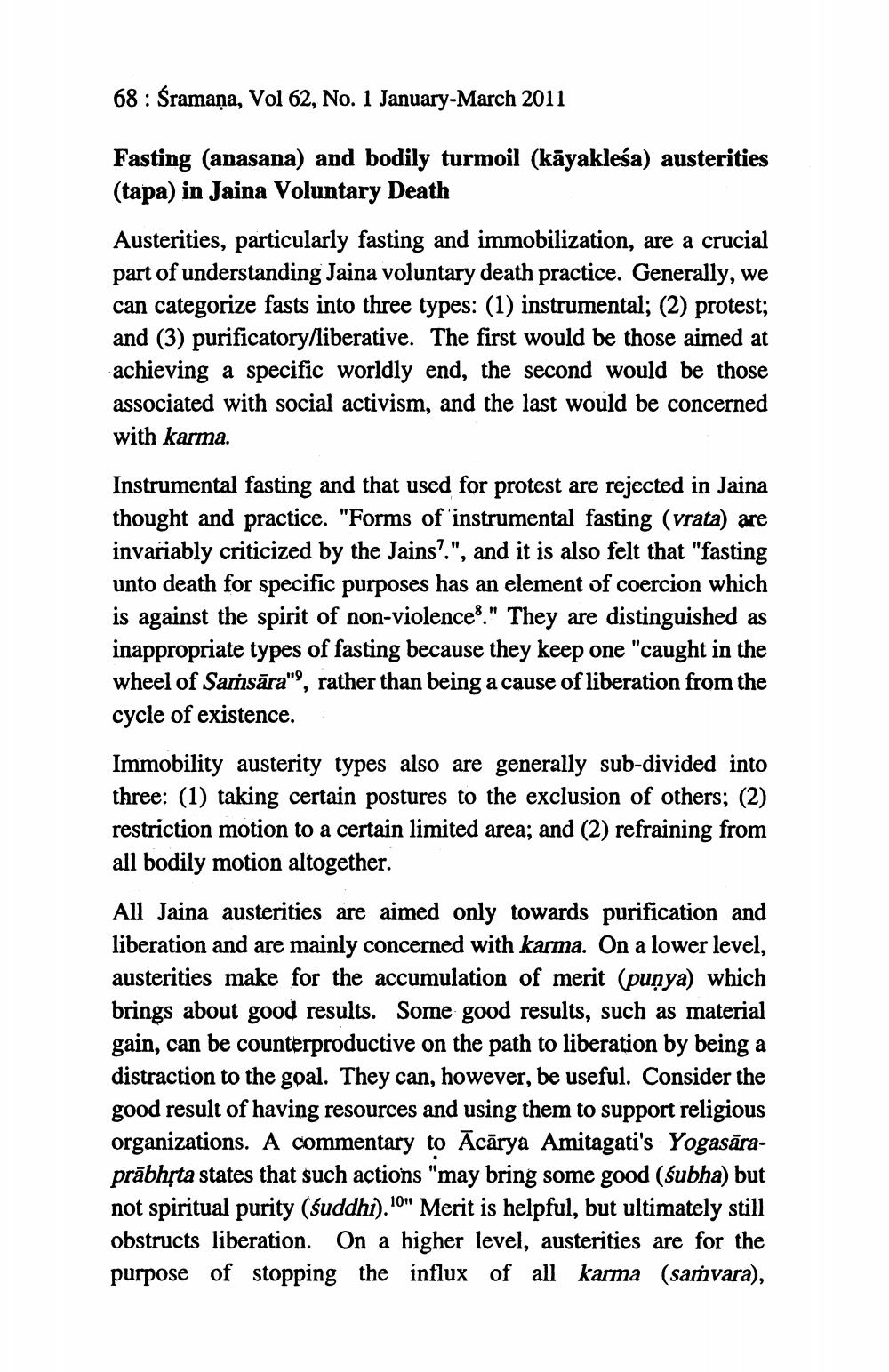________________
68 : Śramaņa, Vol 62, No. 1 January-March 2011
Fasting (anasana) and bodily turmoil (kāyaklesa) austerities (tapa) in Jaina Voluntary Death Austerities, particularly fasting and immobilization, are a crucial part of understanding Jaina voluntary death practice. Generally, we can categorize fasts into three types: (1) instrumental; (2) protest; and (3) purificatory/liberative. The first would be those aimed at achieving a specific worldly end, the second would be those associated with social activism, and the last would be concerned with karma.
Instrumental fasting and that used for protest are rejected in Jaina thought and practice. "Forms of 'instrumental fasting (vrata) are invariably criticized by the Jains?.", and it is also felt that "fasting unto death for specific purposes has an element of coercion which is against the spirit of non-violence." They are distinguished as inappropriate types of fasting because they keep one "caught in the wheel of Samsāra", rather than being a cause of liberation from the cycle of existence.
Immobility austerity types also are generally sub-divided into three: (1) taking certain postures to the exclusion of others; (2) restriction motion to a certain limited area; and (2) refraining from all bodily motion altogether. All Jaina austerities are aimed only towards purification and liberation and are mainly concerned with karma. On a lower level, austerities make for the accumulation of merit (punya) which brings about good results. Some good results, such as material gain, can be counterproductive on the path to liberation by being a distraction to the goal. They can, however, be useful. Consider the good result of having resources and using them to support religious organizations. A commentary to Ācārya Amitagati's Yogasāraprābhịta states that such actions "may bring some good (śubha) but not spiritual purity (śuddhi).10" Merit is helpful, but ultimately still obstructs liberation. On a higher level, austerities are for the purpose of stopping the influx of all karma (samvara),




